NEW YORK -- A panel of judges for the Second Circuit Court of Appeals heard oral arguments Thursday in the case of Edith Windsor, an 83-year-old lesbian widow from New York who is challenging the Defense of Marriage Act in a lawsuit against the federal government.
The Second Circuit could become the second federal appeals court to find the 1996 law unconstitutional, following a decision by the First Circuit in Boston last May. Cases in both courts focus on section 3 of DOMA, which prohibits the federal government from recognizing the marriages of same-sex couples in states, Massachusetts and New York, where they can legally wed. The plaintiffs argue the law violates their equal protection rights by treating them differently than opposite-sex married couples in spousal benefits, taxation and other matters in the eyes of the federal government.
A federal judge in Manhattan ruled for Windsor in June, finding that section 3 of DOMA does "not pass constitutional muster" and ordering the government to refund more than $363,000 in estate taxes the widow was forced to pay when her spouse, Thea Spyer, died in 2009. Windsor and Spyer, who were together for more than 40 years, married in Canada in 2007. Their marriage was recognized by New York, where an executive order honoring out-of-jurisdiction same-sex marriages took effect in 2008.
Attorneys representing Windsor and the House Bipartisan Legal Advisory Group, which is defending DOMA, converged on the Daniel Patrick Moynihan U.S. Courthouse in lower Manhattan on a dreary gray morning. Sunlight emerged and beamed through the windows of the ninth-floor courtroom just as the arguments began around 10:45 a.m. The judicial panel consisted of Chief Judge Dennis Jacobs, appointed by President George H.W. Bush; Judge Chester Straub, an appointee of President Clinton; and Judge Christopher Droney, who was appointed by President Obama. The Department of Justice, which stopped defending DOMA in 2011 but continues to enforce the law, also offered arguments that seemed to reinforce Windsor's case.
Paul Clement, the former solicitor general representing the House Republican-controlled BLAG, kicked off the proceedings with an echo of his arguments to the First Circuit in April. He said that at the time Congress passed DOMA more than 16 years ago, it confronted a "unique and unprecedented dynamic" triggered by the possibility that Hawaii would become the first state to legalize same-sex marriage. Clement also questioned whether Windsor's case had standing because she was married outside the country in 2009, before the state's marriage equality law was passed and took effect last year. The panel did not sound persuaded, with Judge Straub saying the "New York legislature has acted."
A significant part of the compelling, hour-long proceedings involved the question of what level of judicial scrutiny should apply to gay and lesbian people. This key question concerns whether individuals merit special protection as a suspect class. The Second Circuit has not addressed this issue as it applies to gays and lesbians.
"The fight here, the question of scrutiny, is basically about two things," said James Esseks, director of the Lesbian Gay Bisexual Transgender & AIDS Project at the ACLU, which brought the Windsor case, in an interview after the oral arguments concluded. "When the government discriminates against gay people, does the court start from a place where they presume that the discrimination is constitutional, and it's up to the plaintiff to say, 'It's not'? Or instead, do they start from a place that says, 'We presume that government discrimination is unconstitutional, and it's up to the government to explain to the court why they need to rely on sexual orientation in this context," he said.
Clement argued for the former, while Windsor's legal team, led by Roberta Kaplan, an attorney with Paul, Weiss, Rifkind, Wharton & Garrison LLP, argued that DOMA should be considered under the most stringent standard of strict scrutiny. She added, however, that the law would not even pass the least stringent test of rational basis review, calling DOMA "an unprecedented, permanent one-time exception for gay people."
Asked by Judge Droney why was she was arguing for strict scrutiny and not intermediate scrutiny, Kaplan responded that sexual orientation was more like race than gender. Being gay does not differentiate one's ability to contribute to society the way the physical differences of being a woman who can get pregnant, for example, do. She said, "We believe that being gay or lesbian is closest to being an African American, than it is being a woman."
The arguments about judicial scrutiny included a series of intriguing observations concerning the "political powerlessness" of gay and lesbian people. Clement argued that gay and lesbian people are not politically powerless because they can "get the attention of legislatures," as they did in New York, and he offered that the true measure of powerlessness would be disenfranchisement, such as what African-Americans and women denied the right to vote experienced. He said he was not aware of any situation of political disenfranchisement that had been caused sexual orientation.
Chief Judge Jacobs asked whether DOMA itself would constitute such an instance, to which Clement asked how a politically powerless group of people could manage to get their elected representatives to file an amicus brief to repeal the law. That brief has now been joined by more than 130 Congress members.
"This is an issue that can be left to the democratic process," he said. "Look no further than the state of New York."
Acting Assistant Attorney General Stuart Delery delivered arguments for the Department of Justice, as he did for the Gill case in the First Circuit. Judge Droney asked him whether the federal government viewed DOMA through the lens of strict scrutiny or intermediate scrutiny. Delery said the federal government believed that something more than the least stringent standard of rational basis review applied, but he said the government did not take a position on whether that was intermediate or strict scrutiny.
"However you parse the origins, it is a deeply ingrained aspect of one's identity," he said of sexual orientation.
Chief Judge Jacobs questioned how Delery could argue that gay men and lesbians are politically powerless when the Department of Justice's very appearance in court to challenge DOMA would seem to contradict that declaration. He said, "Your presence here would be an argument against the argument," to which the attorney responded that gay and lesbian people still regularly lose when their rights are subject to popular vote, for instance.
Earlier, Chief Judge Jacobs had highlighted the awkward position of Delery, tasked with arguing for the underlying rationale that finds DOMA unconstitutional while the administration continues to enforce the law. The judge asked him, "So, basically your role is to stimulate decision-making in the courts?" prompting light laughter to break in the crowded courtroom. Judge Straub pointed out that the Department of Justice had defended DOMA until two years ago, asking, "What is it that changed your view?" Delery responded that a new analysis of the proper level of scrutiny had promoted President and the Attorney General to change course.
Windsor has already appealed her case to the Supreme Court, citing the need to expedite her appeal in part because of her fragile health. She said outside the courthouse following the proceedings that she suffers from "a number of major illnesses" and "a lousy heart." Despite her condition, however, she said she recently managed to take a lesbian-themed boat cruise, where she said she was greeted like a "hero." Asked what she thought of being the public face of the marriage equality battle, she smiled and said, "I love it. It feels great."
"Not only is it illegal as my lawyers argued today, but it challenges the basic princples on which this country was founded from the first, fairness and equality," she said. "I look forward to the day when the federal government recognizes all marriages as legal, and I'm very hopeful that day will come while I'm still alive."
Plaintiffs from the Pedersen case in Connecticut, which makes similar arguments as the Windsor challenge, joined her in Manhattan. Their case is being appealed to the Second Circuit while attorneys for Gay & Lesbian Advocates & Defenders have also asked the Supreme Court to review the challenge. Should the high court decide to hear Windsor's case, it would bypass a ruling from the Second Circuit, her attorneys said. If the court takes one or more of the other cases, then the Second Circuit can still rule in Windsor.
The Supreme Court returns to session this Monday, but the nine justices have not yet indicated which of several DOMA cases, if any, they plan to hear. Legal experts widely believe the court will hear at least one of the challenges, a sentiment expressed by Justice Ruth Bader Ginsburg in remarks at the University of Colorado at Boulder last week. That means a ruling on DOMA would be delivered by June 2013.
Windsor, meanwhile, said she remained "optimistic" after a day of oral arguments that brought nothing unexpected, a feeling that her attorney Kaplan shared. She said that she believed her late spouse Thea would be "happy" with her efforts, and that a victory over DOMA would be "momentous" in terms of improving the coming out experience for gay teenagers, smoothing life for the children of same-sex couples, and helping to reduce suicides among young and old gay people.
"I think it will begin to be the end of internalized homophobia," she said. "We don't have to lie about who we are anymore."
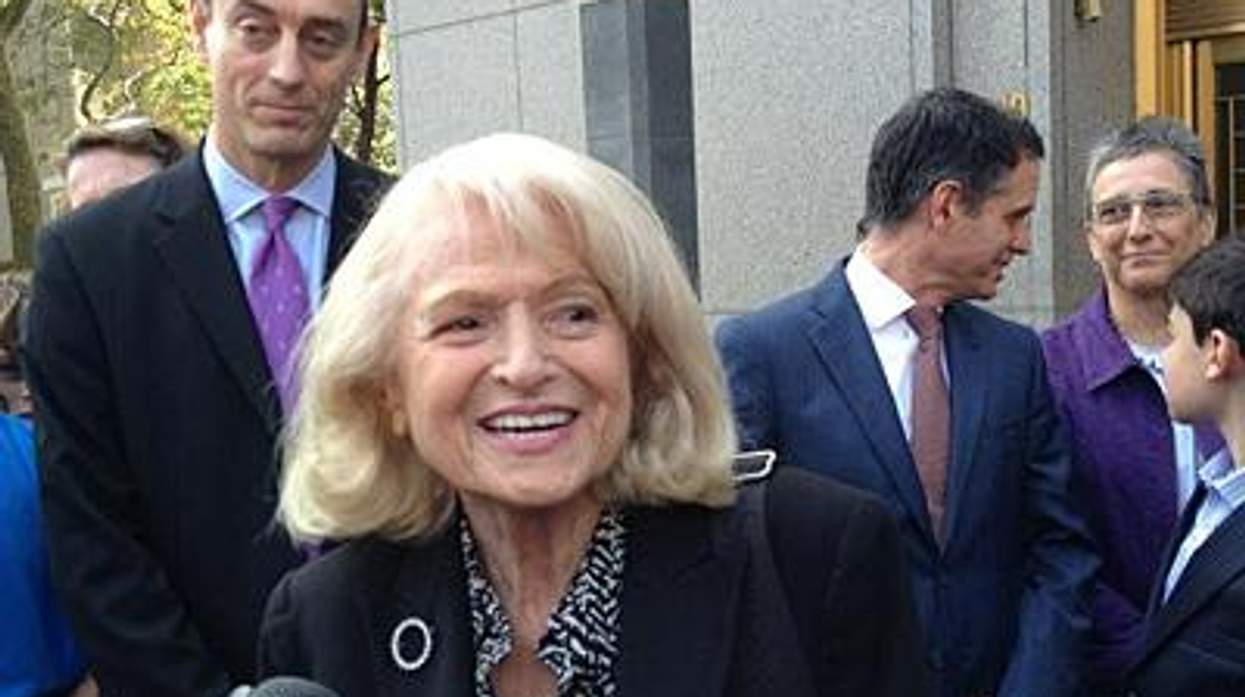




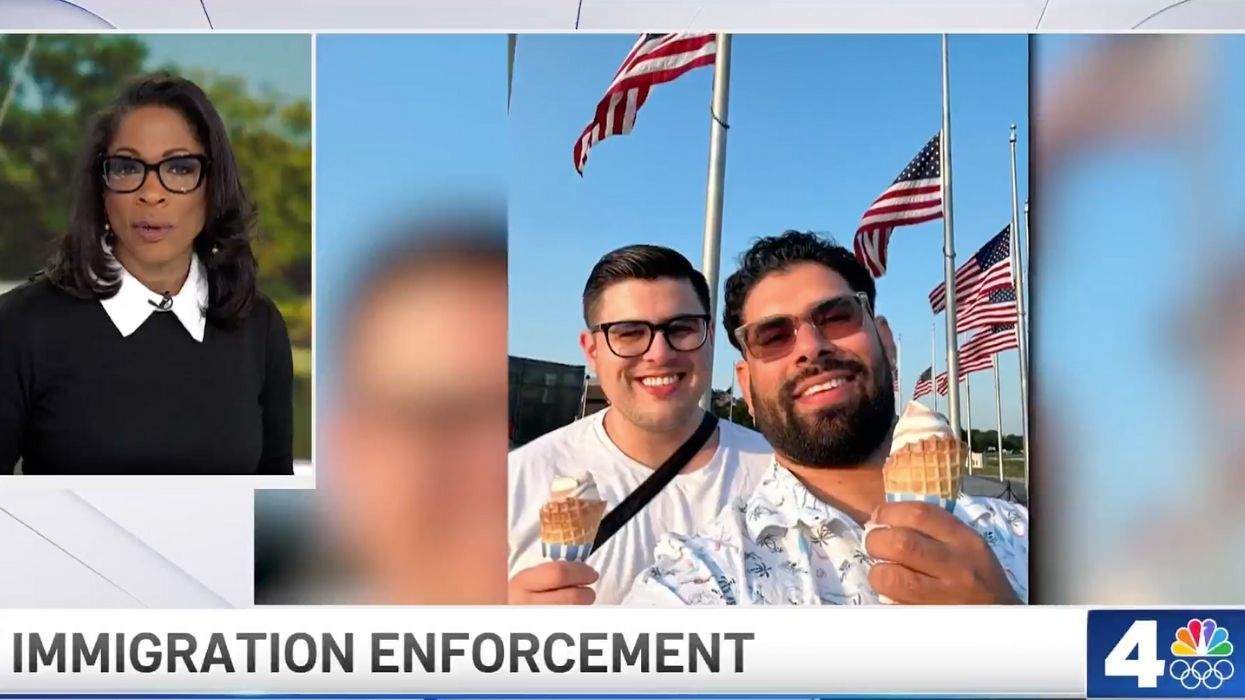
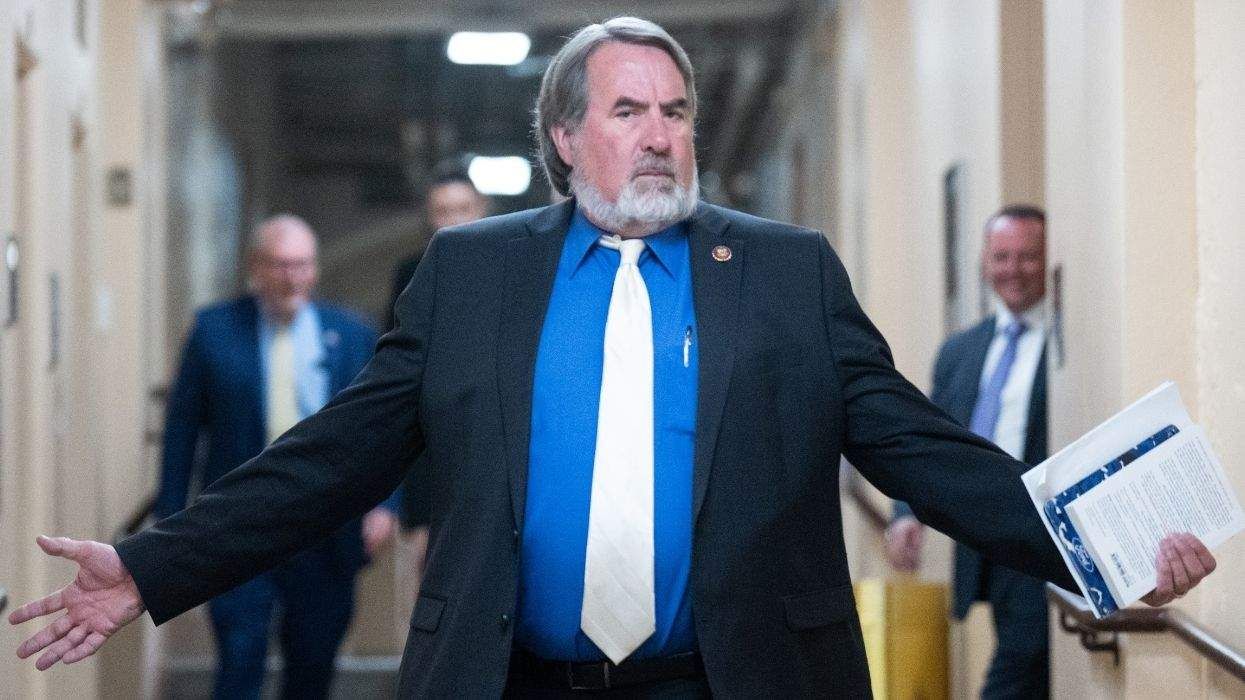

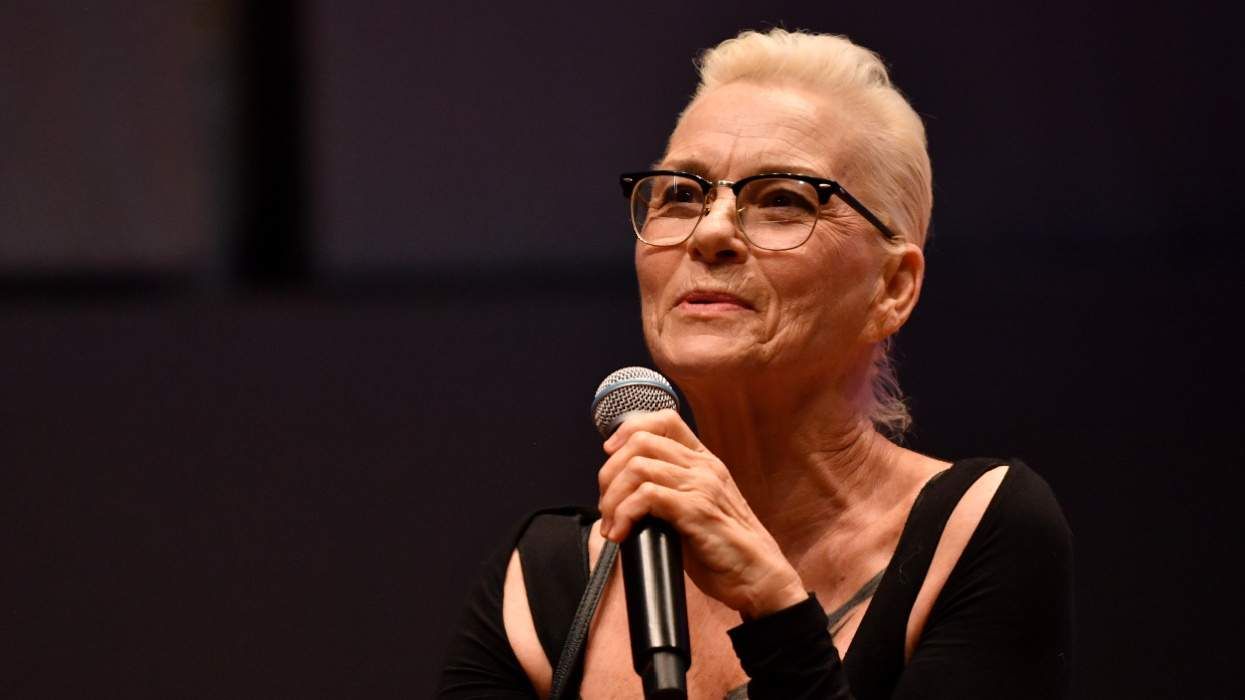
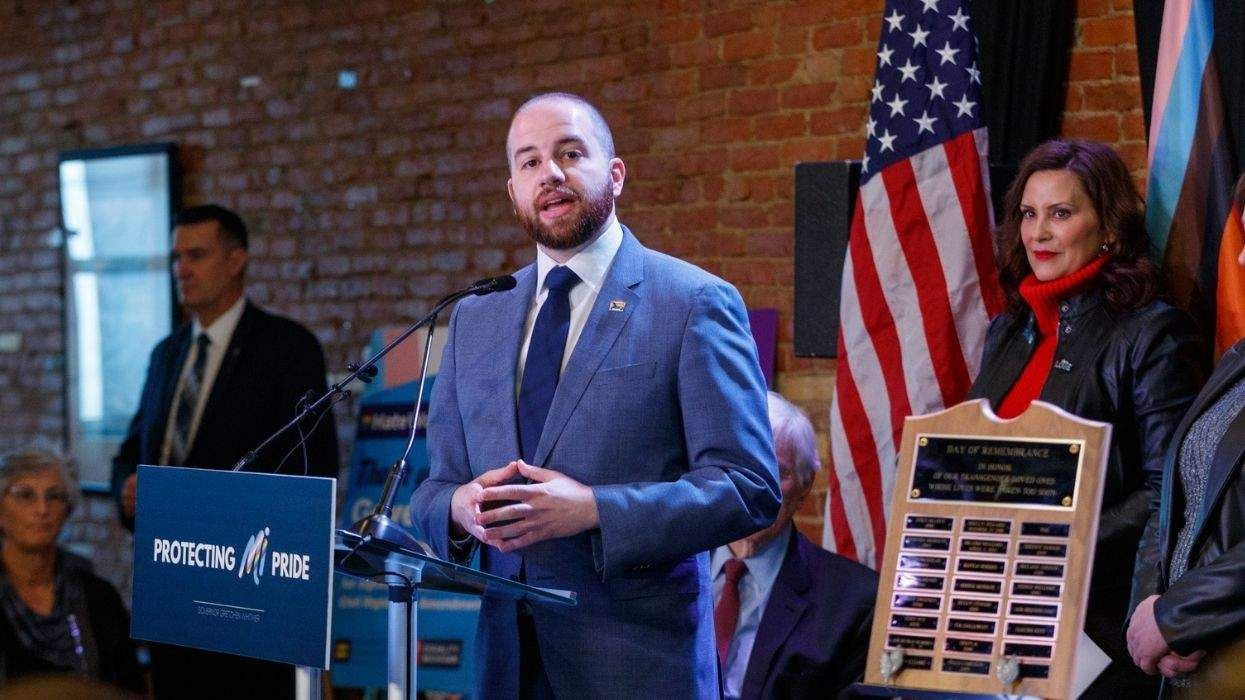





Charlie Kirk DID say stoning gay people was the 'perfect law' — and these other heinous quotes
These are some of his worst comments about LGBTQ+ people made by Charlie Kirk.